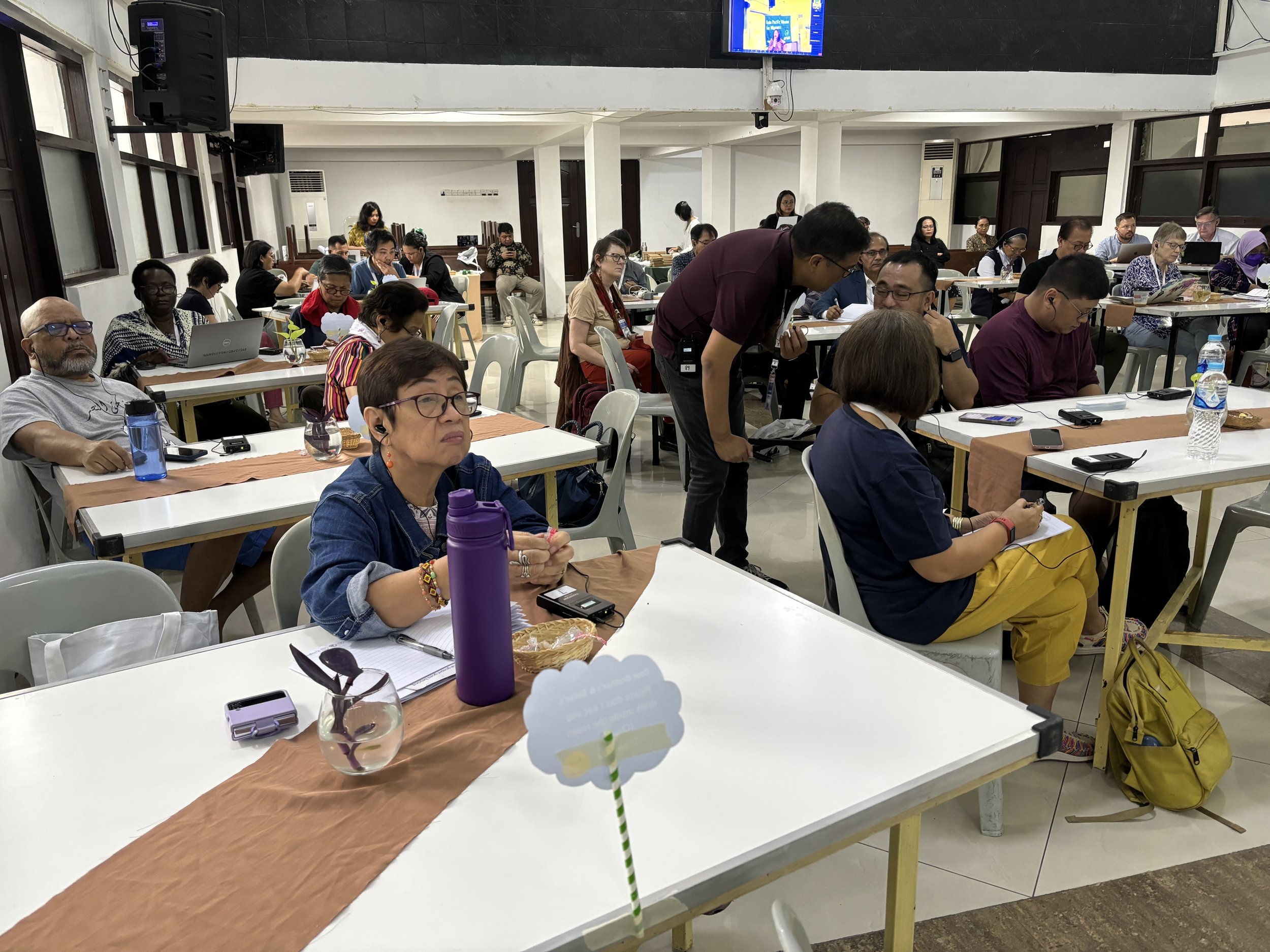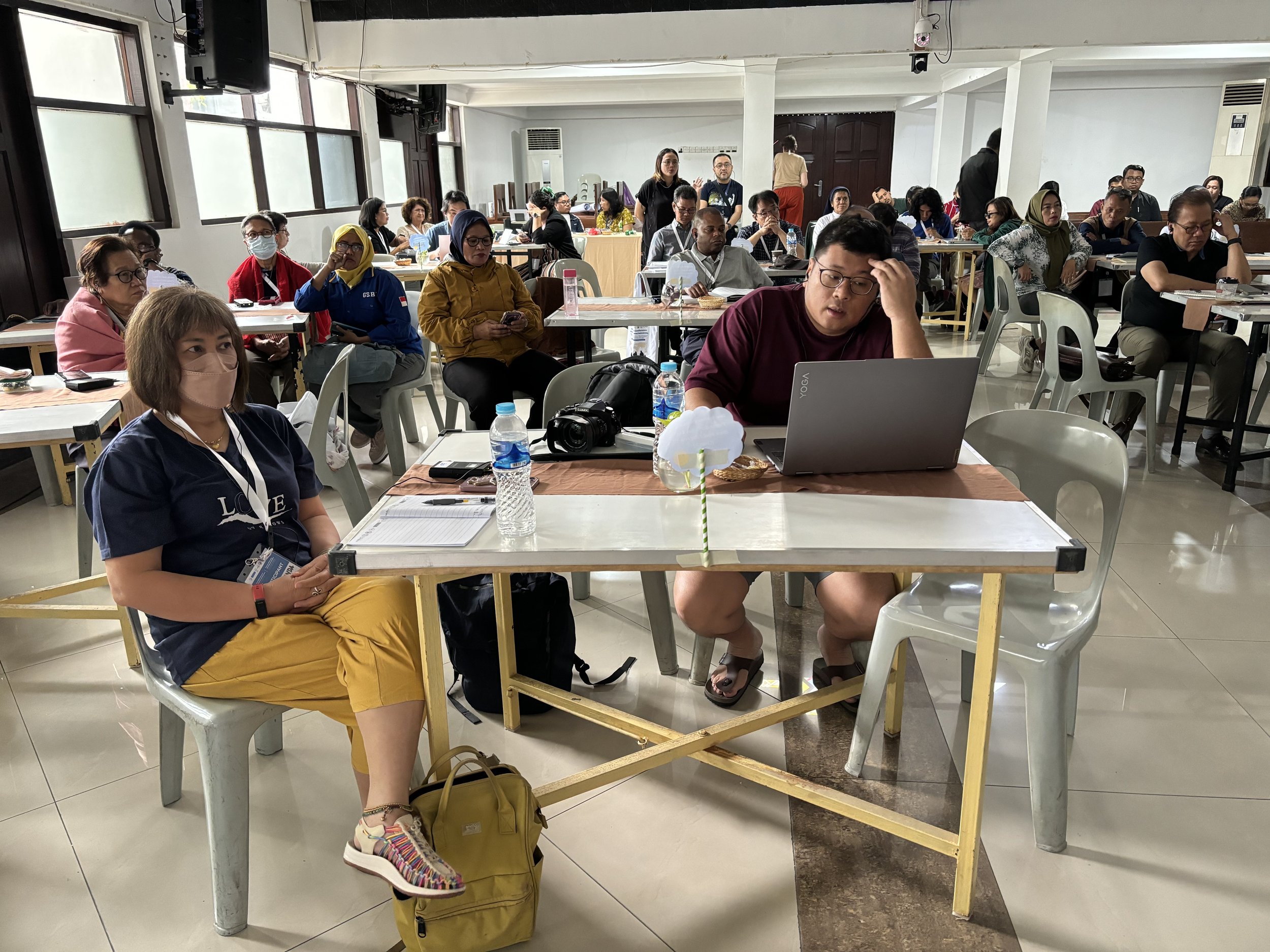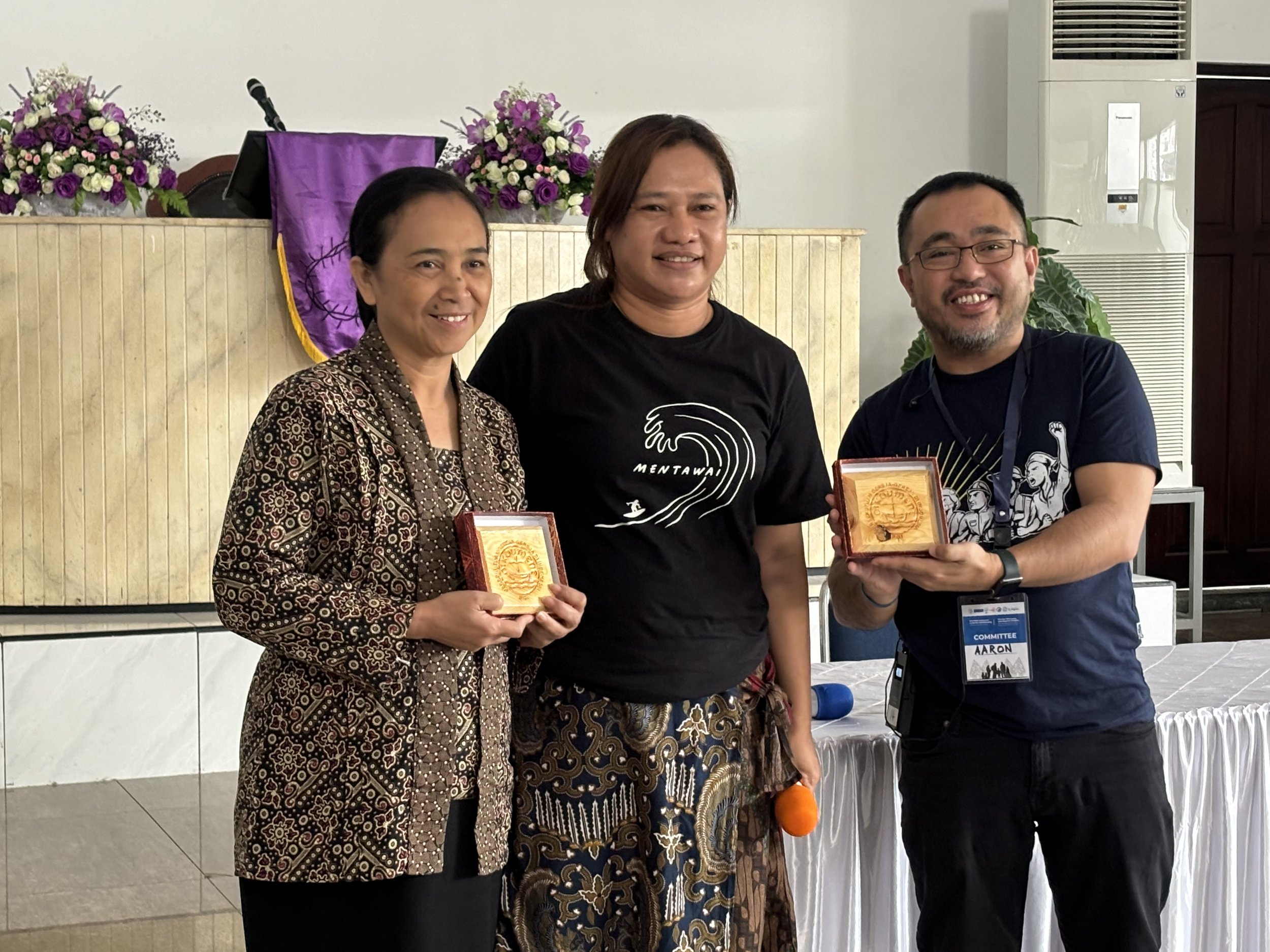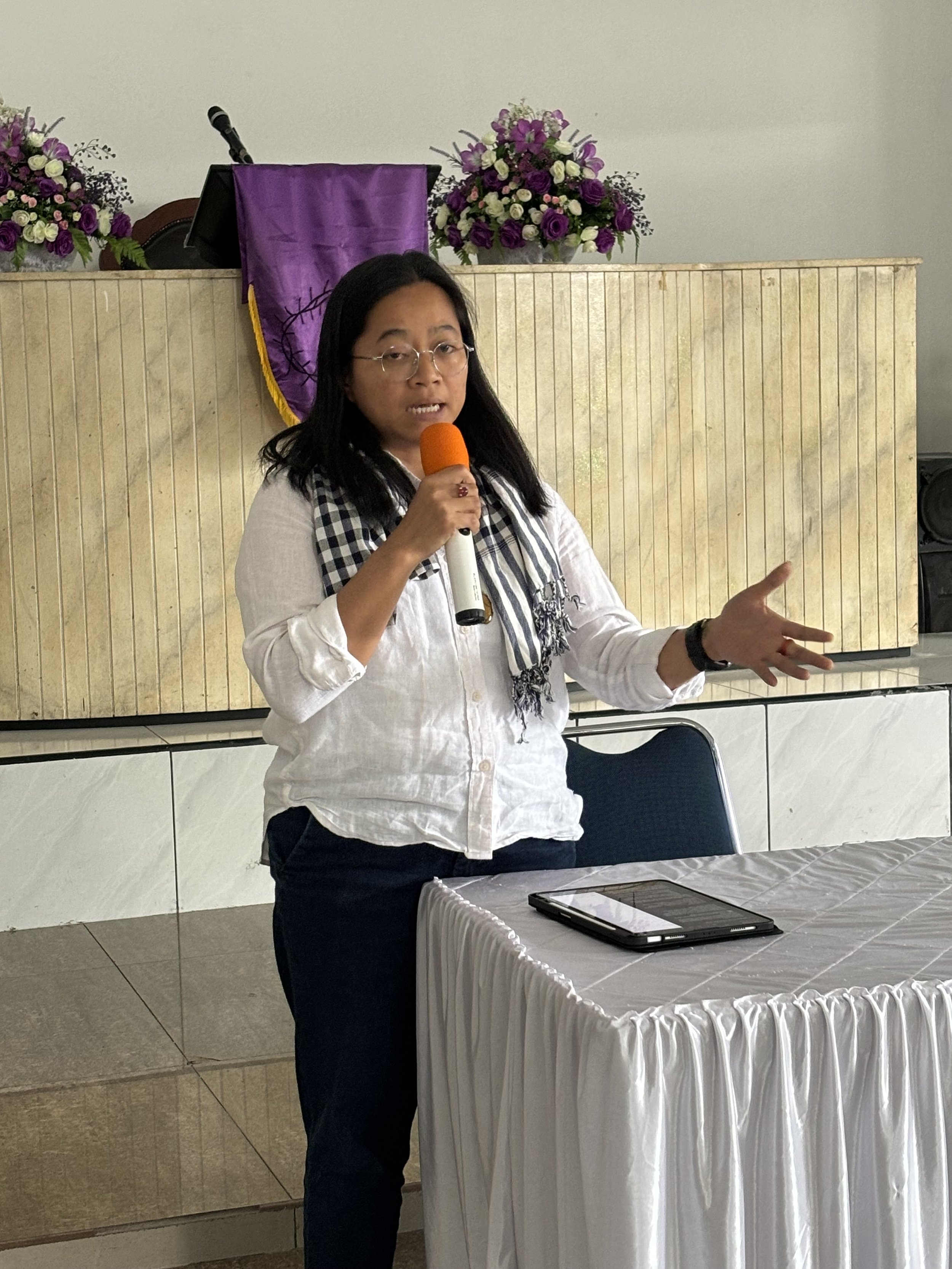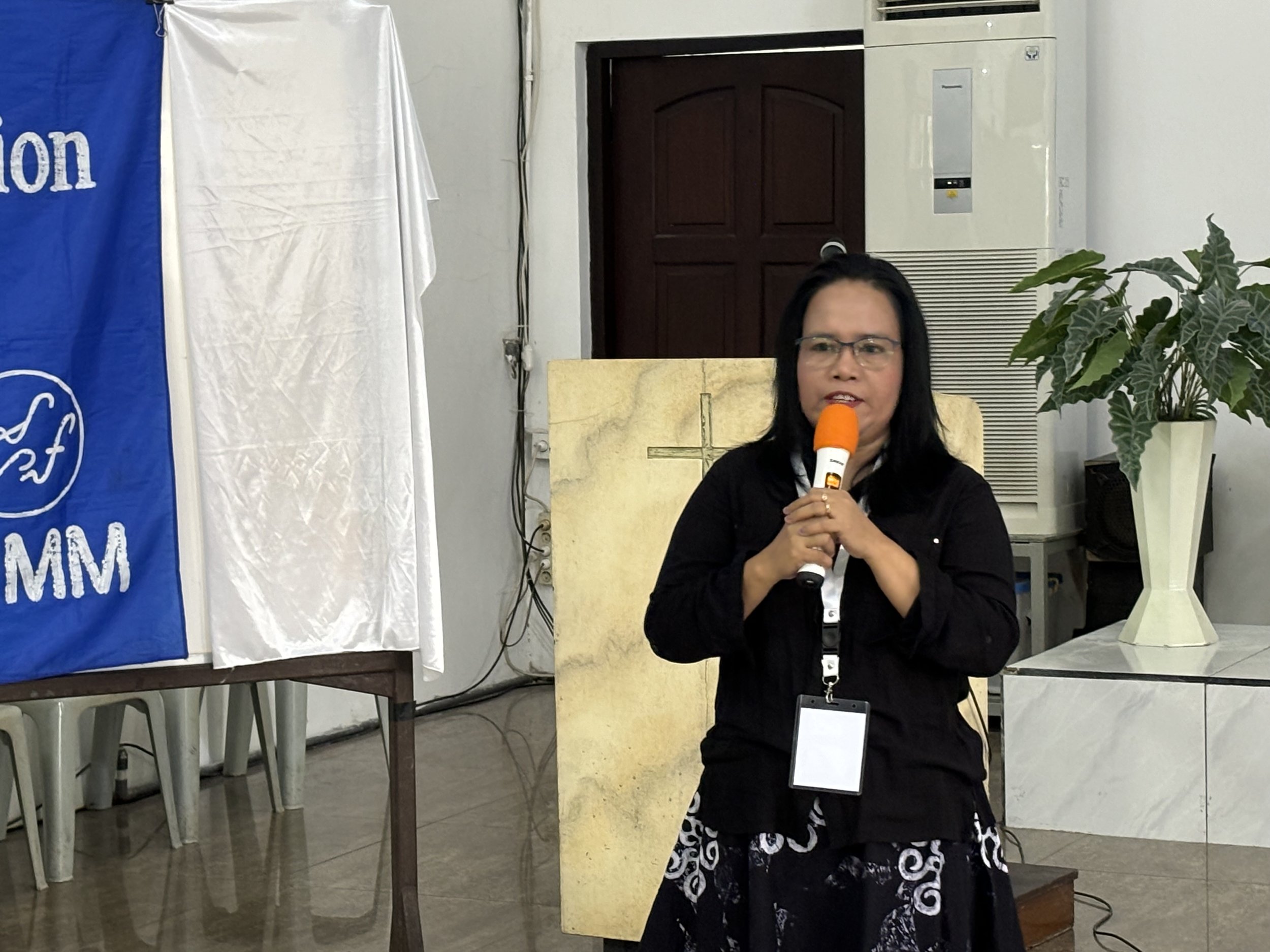Indonesian Labour Migration: Driving Factors and Trend (From the National Forum on Indonesian Situation)
In between the concluded Interfaith Conference on Service and Advocacy 2024 and prior to the start of the Churches Witnessing with Migrants (CWWM) 12th international Consultation, the National Forum on Indonesian Situation was purposely organized and conducted last February 28, 2024, at the Bait Allah Christian Evangelical Church in Sangihe, Jakarta, Indonesia.
The half day Forum was jointly organized by the Asia Pacific Interfaith Network on Migrants (AP INFORM), Asia Pacific Mission for Migrants (APMM), Churches Witnessing with Migrants (CWWM), together with the Communion of Churches in Indonesia (CCI), the Progressive Islamic Forum (PIF), Kabar Bumi, and the Beranda Migran.
The objectives of Forum are to provide participants from the two mentioned international meetings a critical understanding of the conditions of primary sectors in Indonesia that caused forced migration. Likewise, the Forum also gave the participants an understanding on the migration trends and the development of migrant workers’ conditions in Indonesia.
The Forum was also a splendid opportunity for the participants of the ICSA and CWWM to meet and interact with both grassroots sectoral organizations and faith based migrant serving institutions taking up the cause and defending the rights of migrants, refugees, asylum seekers, internally displaced peoples, and people in varied forms of forced migration including human trafficking.
Hosted by Hanindha Kristy from Beranda Migran the Forum have sets of panel discussions highlighted the event. The first set of panellist focused their presentation on the”Root Cause of forced Migration”. Leaders form the Agrarian Reform Alliance, the Center of Indonesian Labor Struggle and Beranda Perempuan shared their critical insights and analysis regarding the topic base on the concrete experience they have in working with the basic sectors of Indonesian society- the farmers, workers and the urban poor.
The panellist emphasized that the amongst the root cause of forced migration, both internal and international, are attributed to:
Rural poverty and exploitation characterized by unequal ownership of land by a wealthy few families while majority of the farmers are deprived of owning the very land they toil. Likewise, the government has not fully addressed the plight of these farmers in relation to landownership.
Backward and non-mechanized agricultural production.
Massive importation of agricultural products due liberalization and deregulation of the agricultural industry (ex. rice)
The second set of panellist on the other hand tackled the “Condition of Migrants and Returned Migrants”. Leaders of the Association of Indonesian Migrant Workers (Domestic Workers), Pejuang Suara Pelaut (Seafarers), Koalisi Buruh Migran Berdaulat (Plantation Migrant Workers), and Keluarga Besar Buruh Migran Indonesia (Returned Migrants) presented their analyses according to their various experiences as migrants and migrant rights defenders. The panellist provided comprehensive insights and detailed experience about the particular sector they represent and advocates particularly:
The low salaries of the workers both land-based and sea-based workers in Indonesia that is not enough to attend to the basic needs of their families.
Adverse and exploitative impact of neoliberalism on domestic and migrant labor including the seafarers, refugees (ex. Rohingya), undocumented and stateless people specially in the case of plantation workers in Sabah, Malaysia.
Oppressive and exploitative labor export policies instituted by both migrant sending and receiving countries.
The Forum concluded with Sringatin reading the closing statement prepared by the Indonesian Migrant Workers Union (IMWU) calling for: 1) service providers and interfaith communities to conduct exposures to see the real situation and know the concrete needs of migrants and families; 2) service providers and interfaith communities to involve migrant workers directly in advocacy and services. The important resolutions were unanimously adopted by the Forum participants. ###
See some photos from the NFIS below:
